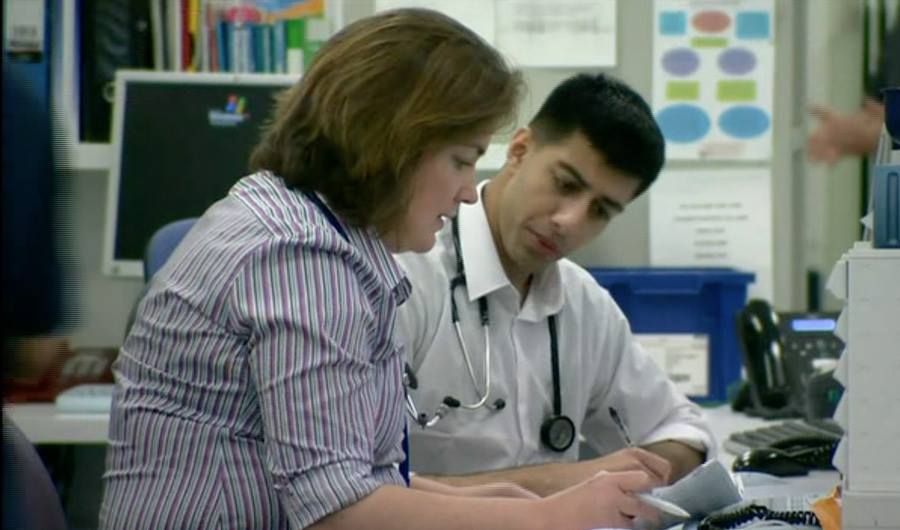
March 9, 2020, by mszrm4
Teaching and learning in the workplace
This week I have been preparing materials for one of our modules: ‘Learning in uncertain and complex environments’. One of the pre-module tasks is to watch this short BBC film set in the Royal Blackburn Hospital’s emergency department. The question we pose to our scholars is: ‘What are the challenges you may face as clinical educators in such an environment, and what are the ways in which you could design educational activities for learners in an environment such as this?’ That’s quite a challenge!
The University hospitals in the East Midlands employ literally hundreds of people who have a formal educational role as part of their clinical job. GP Surgeries and community services across the county do the same. Health professions educators are in every discipline from nursing, midwifery, the therapies, advanced clinical practice, medicine and more. Education is at the heart of our professional practice because it’s ultimately about patient safety. But it takes a particular set of skills to embrace the sometimes ‘VUCA’ (volatile, uncertain, complex and ambiguous) environments in which we find ourselves – and make learning happen.
One useful way to think about this task is to forget about ‘teaching’ altogether. Let me explain. Sure, there will be times specifically set aside for teaching, but teaching on the job in a busy clinical environment can make teachers feel stressed – under pressure to ‘perform’ while also seeing patients. But once you understand that teaching and learning are not the same thing, your life will never be the same again!
Facilitating learning is much more flexible, creative and feasible in a busy clinical environment, and there are lots of different ways in which this can be done. For just a few ideas, check out the Royal College of Physicians ‘Never too busy to learn: how the modern team can learn together in the busy workplace ’ webpage. Learning how to facilitate learning instead of ‘teaching’ was the best lesson I ever learned as a healthcare professions educator working in a busy, uncertain and complex clinical environment. But I also learned something else: make sure you make your strategy explicit to your learners… just in case they do not realise what you are doing!
Nicola Cooper is a consultant physician, training programme director, Senior Fellow of the Higher Education Academy and faculty member of the MMedSci (medical education) at Nottingham.
No comments yet, fill out a comment to be the first

Leave a Reply